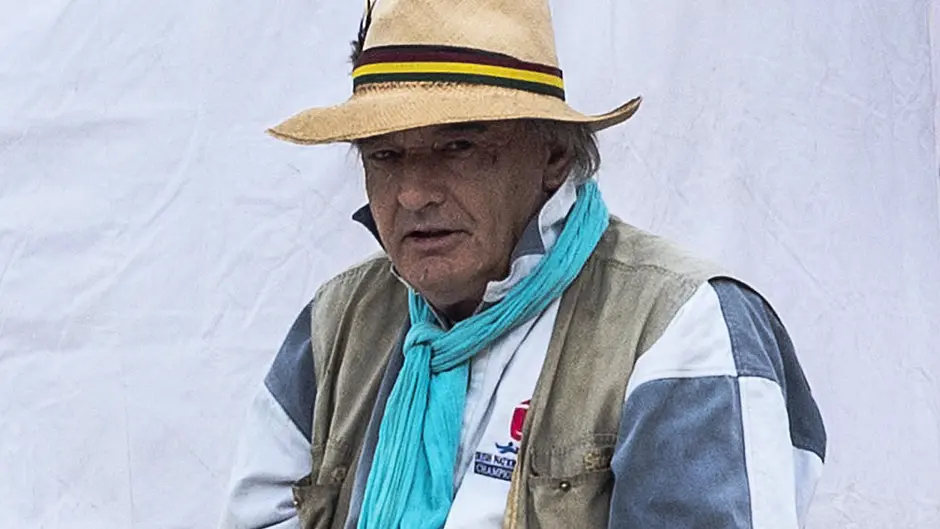OPINION: Southern Star editor Siobhán Cronin never felt comfortable around Ian Bailey

A CORK county councillor was this week left justifying why she suggested adding Ian Bailey’s name to a ‘vote of sympathy’ section in the Council chamber on Monday. She later said she wanted to ‘mark’ his death and there was no other facility for mentioning him at the meeting. But whatever the reason, the phrase ‘tone deaf’ sprang to mind.
The timing of the comments raised many eyebrows as soon as she spoke – especially as the words were coming from a woman. Bailey had a long and undisputed history of violence against women. He readily admitted he had attacked his now-former partner Jules Thomas on various occasions – sometimes very viciously, leaving her scarred and needing stitches, and even hospitalisation.
And apart from having said in court once that he was ‘ashamed’ of himself, he regularly found ways to try to excuse his horrific behaviour. He spoke of them ‘both’ being to blame for the incidents; of alcohol being a factor and, most bizarrely, in a court case in 2014, he tried to pass it off as not that unusual in West Cork.
‘As we know, domestic violence is very common. There were many other people – without mentioning other names in the locality – that have had incidents of domestic violence. I was not the only person in West Cork, for example, that was guilty of domestic violence when drink was involved,’ he told a judge.
This ‘spreading the blame’ strategy is one that many survivors of domestic abuse will recognise. Ian Bailey was a tall, imposing man of 6ft 4” in height and broad-shouldered. Jules is about 5ft 1”, a slight woman, not unlike Sophie Toscan du Plantier in stature. When I first arrived in West Cork in 2010, I would regularly see Bailey striding around various towns and villages – he particularly liked the social element of the farmers’ markets.
It shocked me initially to see such a high profile murder suspect apparently so confident and cheerful, out and about and chatting jovially with anyone who would stop to talk. I was horrified to see him approaching total strangers at the markets, with arms extended for a handshake – most of them no doubt afraid to irk him by rejecting him.
He was like a politician before a crucial election day wanting to ‘press the flesh’.
But I was truly shocked by how many women agreed to shake those hands, and would make comments like: ‘We’re with you, Ian’, or clap him on the back, saying ‘Keep up the good work, Ian.’
I refused to be introduced to him and would make myself unavailable on the several times he arrived at the Star’s office, to enquire about work. My editor at the time brushed him off with a very effective ‘Come back when the court cases are finished, Ian’ knowing it was unlikely they ever would be. On a few occasions he mentioned to friends that he had seen me at farmers’ markets in Schull or Skibbereen, and a shiver always ran up my spine, because, yes, I had been there. But we’d never formally met, so why would he recognise me?
In more recent years, he would attempt to approach me at an event or on the street in Skibbereen or Bantry. I had no doubt he was going to make enquiries about working as a journalist again. (Prior to Sophie’s death, he had written a few short articles for the Star on art exhibitions and the like, but his writing didn’t particularly stand out, I’d been told. Indeed the proliferation of typos and misspellings in his self-published books cemented those assertions for me.)
I always refused to make eye contact with him, but I could still feel his imposing presence behind me in a crowd, and it made me feel very uncomfortable. When he started his social media accounts, I don’t know if it was naïvete or conceit, but his unfettered comments about young women were disgusting and vile.
However, by now, we were almost immune to his repellent behaviour, and his lurid comments largely went without remark. Having heard one too many stories of him startling women with his erratic conduct, I refused to let our female reporters interact with him. I didn’t want them exposed to his unpredictable reactions if he was unhappy with a story.
His only contact with this newspaper was a male reporter who very quickly had the ‘measure’ of him. We also refused to report on the myriad utterances he made in recent years, which became tabloid fodder. Bailey sells newspapers, for sure, but I refused to give oxygen to his inane ramblings about his ‘innocence’, or his podcast, or his theories on alleged assaults by unidentified attackers. If he was appearing in court, that was news, but anything less was only pandering to his obvious narcissism.
When this week I read posts online from a number of West Cork women detailing eerie encounters with him, I cannot say I was surprised. But there are hundreds more comments from women supporting – almost idolising – him.
At a time when violence against women is worryingly on the increase, we should not make any allowances for those who perpetrate it and then seek to diminish their actions. Indeed, we should never make such allowances.
Whether the death of Sophie was at the hands of Bailey or another aggressor, there is an onus on all of us to stand up and be counted when we see violence being relegated to a moment of madness, or alcohol-fuelled temporary insanity.
The survivors are worth so much more than that.










